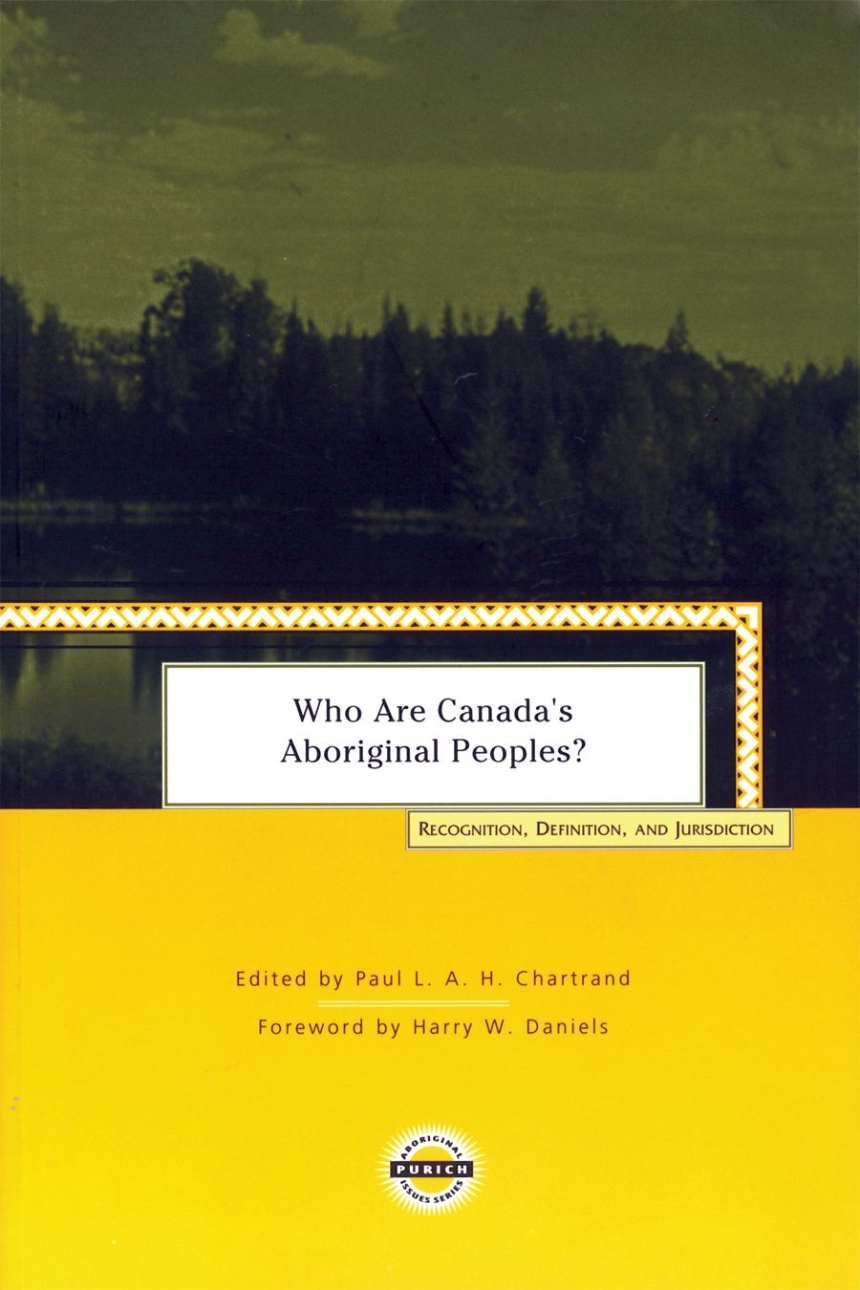Distributed for Purich Publishing
Who are Canada’s Aboriginal Peoples?
Recognition, Definition, and Jurisdiction
Table of Contents
Foreword / Harry W. Daniels
Introduction / Paul L. A. H. Chartrand
1. Background / Paul L. A. H. Chartrand
2. Collective and Individual Recognition in Canada: The Indian Act Regime / John Giokas & Robert K. Groves
3. Who are the Métis? A Review of the Law and Policy / John Giokas & Paul L. A. H. Chartrand
4. Domestic Recognition in the United States and Canada / John Giokas
5. Métis and Non-status Indians and Section 91(24) of the Constitution Act, 1867 / Robert K. Groves & Bradford W. Morse
6. Political Recognition: An Assessment of American Practice / Russel L. Barsh
7. When is a Métis an Indian? Some Consequences of Federal Constitutional Jurisdiction over Métis / Dale Gibson
8. Defining "The Métis People": The Hard Case of Canadian Aboriginal Law / Paul L. A. H. Chartrand & John Giokas
Conclusion / Paul L. A. H. Chartrand
Index
